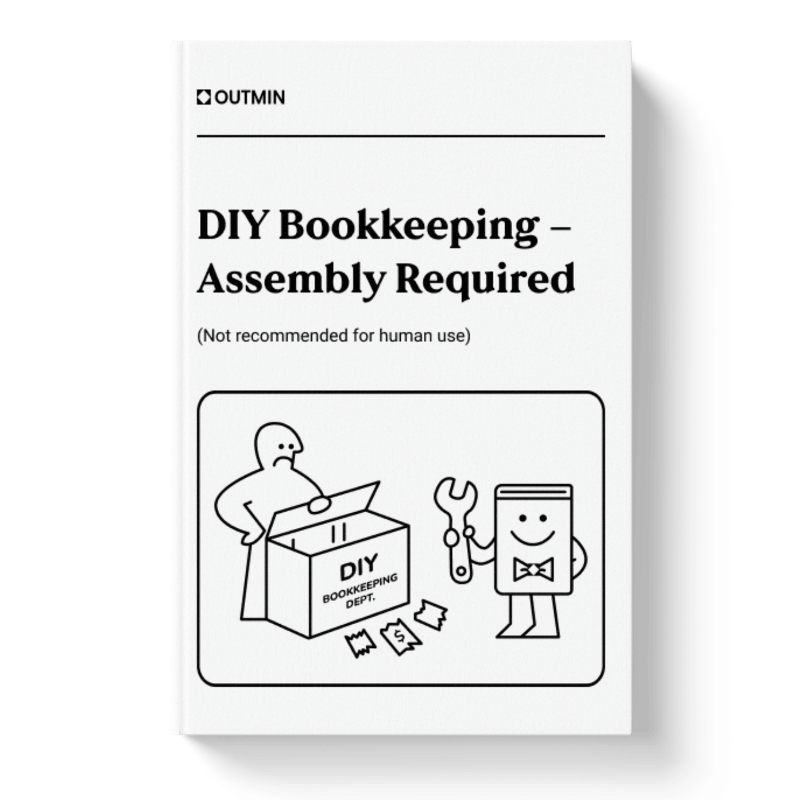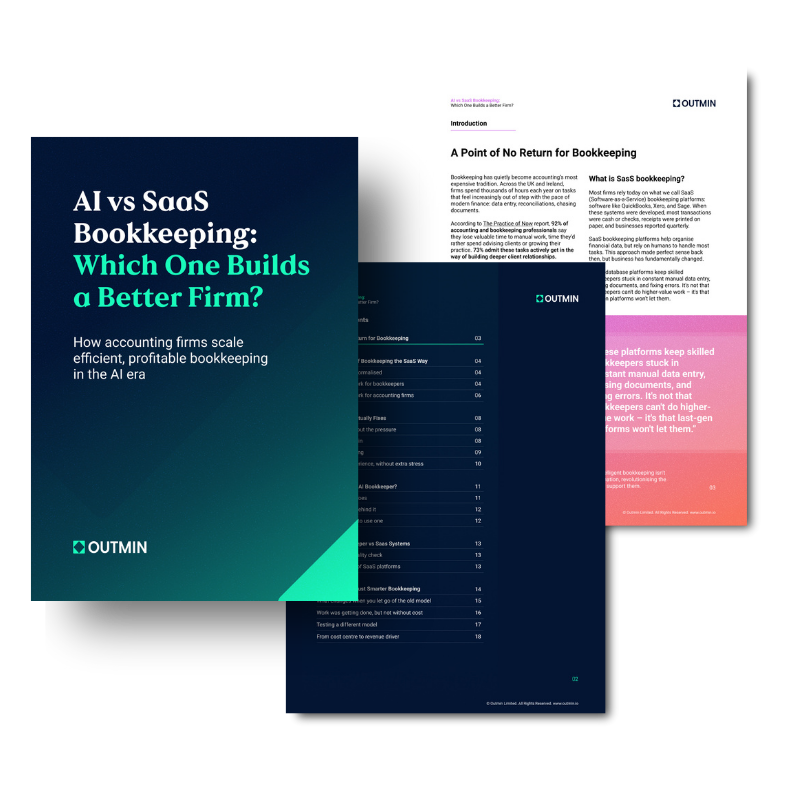May 15, 2025
AI Bookkeeping Revolution: 85% of Accountants Open to Automation

For years, artificial intelligence in accounting felt like a distant promise. A topic for conference panels, future-gazing articles, or the occasional bold prediction. Not anymore.
A new global report from Chartered Accountants Worldwide (CAW) confirms what many already suspect: AI is here, and it’s not theoretical anymore. It’s already changing how work gets done across the accounting profession.
According to the study, 85% of accounting professionals say they’re willing to use AI tools. Among 18–24-year-olds, that number jumps to a staggering 91%, with 83% already using AI weekly in their roles. And they’re doing it in meaningful ways.
The top uses? General productivity, financial reporting, and, crucially, data entry and reconciliation. In other words: bookkeeping.
This is the part of the accounting process that has long been taken for granted. The routine tasks, the admin grind that no one talks about, but everyone does. The never-ending chase for documents, receipts, and “just one more thing.”
That’s the work AI is coming for. And it’s doing it better.

The great unburdening
When people think of artificial intelligence in accounting, they often jump to complex forecasting or predictive analytics.
But most professionals don’t start there. They start where the pain is sharpest: the time-consuming tasks that eat up hours and feel increasingly misaligned with the pace and expectations of modern business.
Even though general productivity is the top use case (43%), it makes sense that reconciliation, categorisation, and document handling are among the first tasks to be offloaded to AI.
These are process-heavy, repetitive, and rule-based: exactly the kind of manual workload machines do well, and humans should no longer be doing.
For accounting professionals, this is especially significant. The CAW report shows that AI is already reshaping day-to-day workflows, with 45% of respondents saying it’s helping them work more efficiently and effectively, and 28% saying AI is already helping them add value to their business and clients.
Confidence is high but still uneven
The generational gap in adoption is striking.
While 80% of younger professionals (18–24) feel confident using AI in their roles, just 47% of those aged 55 and up say the same.
This divide is less about resistance than it is about opportunity and infrastructure.
The report points to a clear reason: lack of training. Only 30% of survey respondents have received any AI-related training through their organisation. Among those who haven’t, 61% say it’s because it is not offered. And yet, the vast majority – 92% – say they would participate in AI training if given the opportunity.
There’s clear appetite for upskilling, but in many accounting firms, the structure to support that isn’t there yet.
This matters because, as the report states, “Preparedness by job level… [is] 54% for Entry-level/Junior and just 43% for Executive/C-Suite.” If leadership isn’t ready, it slows progress for everyone else.

The limits of legacy systems
One of the most common barriers to AI adoption isn’t mindset, it’s mechanics.
According to the report, 52% of respondents state that the biggest barrier to AI adoption is insufficient skills and training, and 30% cite data security concerns. But there’s a deeper issue beneath both: most firms are still operating with tools that weren’t built for this era.
“Current usage is largely focused on general-purpose productivity tools, rather than technical work”, comments Barry Dempsey, Chief Executive of Chartered Accountants Ireland. In other words, firms aren’t resisting AI. They just don’t have the infrastructure in place to make it useful beyond surface-level tasks.
You can’t fully benefit from intelligent tools if your core workflows still depend on email threads, spreadsheets, and post-hoc corrections. Burnout is climbing, human errors persist, and expectations keep rising. The back office needs modernising before it can keep pace.
“The adoption of Artificial Intelligence (AI) among Chartered Accountants is gaining momentum, driven by a widespread interest in enhancing efficiency and job satisfaction.”, says Maciek Ozorowski, Head of AI Transformation at Ipsos.
That momentum is real. But the accounting industry needs the systems to match.
AI isn’t a threat. It’s a shift.
There’s a temptation to frame AI as a threat, especially in industries like accounting, where trust and expertise are core to the profession. But the CAW report makes it clear that’s not how most accountants see it.
“This is not about replacing human intelligence with an artificial one – as there will always be a need for the creative thinking and contextual understanding that we bring.”, says Tim Bond, Associate Director at Ipsos.
The report also notes that 56% agree that incorporating AI into Accountancy practices makes Accountancy more attractive as a career choice.
That’s not surprising. If AI takes away the grind, the work becomes more strategic, more interesting, and more sustainable.
And that’s where the profession is headed. According to the report:
“The majority of Chartered Accountants surveyed feel that AI will make the profession more attractive in the future, with the role changing to be more focused on strategic advice, with less focus on repeated manual tasks.”

So where does Outmin fit into all this?
We believe that intelligent bookkeeping is one of the most practical and immediate applications of AI in accounting today.
Not just because it saves time (it does). Not just because it reduces cost (it does that too). But because it finally solves the invisible workload that has dragged down practices for years.
At Outmin, we’ve built an AI Bookkeeper designed to do the work humans shouldn’t have to:
- Fetching documents
- Invoice processing
- Categorising transactions
- Reconciling accounts
- Flagging anomalies
- Generating financial reports
It integrates directly with banks, suppliers, and sales platforms. It runs continuously in the background. It doesn’t take holidays or sick days. And it ensures your clients’ books are always current, accurate, and traceable.
Bookkeepers can finally focus on review, insight, and advisory, not data processing and cleanup. Firms, in turn, can scale, not by hiring more people, but by giving their current team the tools they need to do more valuable work.
This isn’t about replacing humans. It’s about letting them do what humans do best.
What Firms Gain
For accounting firms and internal financial departments, intelligent bookkeeping isn’t just about saving time. It’s about improving the economics of the entire operation.
With better systems in place:
- Capacity grows without extra headcount
- Staff are redeployed to higher-value advisory services and oversight work
- Burnout and errors drop
- Turnaround speeds up
- Client satisfaction improves
- Margins go up, and so do valuations
All of this has knock-on effects. Less manual work means better margins. Better margins lead to higher profitability. And for firms looking ahead (especially those backed by private equity), higher profitability means higher valuation.
And at a time when firms are feeling the pressure of a talent shortage, it matters that the work itself becomes more attractive. When manual bookkeeping is lifted out of the role, accountants can focus on insight, judgment, and the kind of work people want to stick around for.
Where We Go From Here
The CAW report is clear: the profession is embracing change. As Barry Dempsey puts it, “It is really encouraging to see strong early adoption and enthusiasm in the profession.”
The challenge now is meeting that enthusiasm with the right systems, training, and support so accountants aren’t just experimenting with AI, they’re getting real value from it.
The future of the profession won’t be shaped by hype. It’ll be shaped by the firms that put better systems in place now.
Book a free demo with Outmin to see what intelligent bookkeeping looks like in practice.









